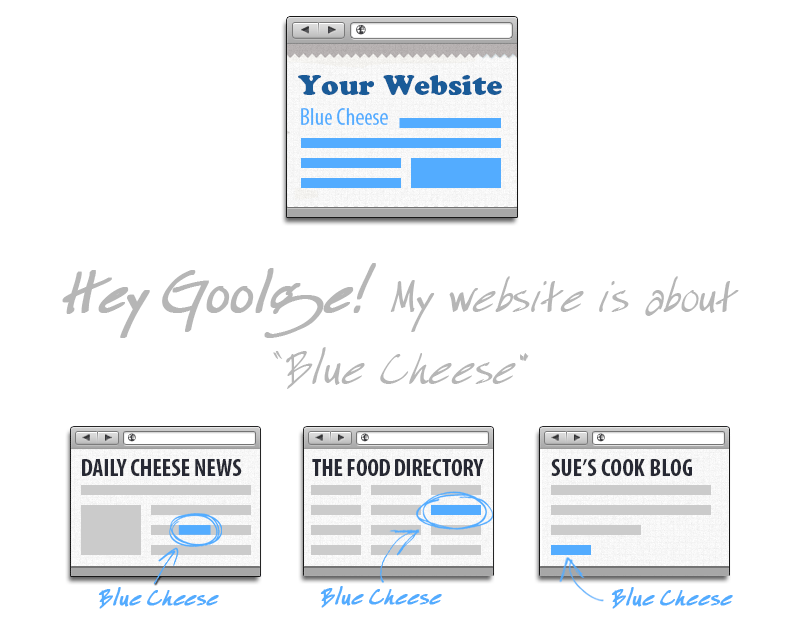Links to your website are one of the most important parts of search engine optimisation (SEO). The more websites that link to your website, the higher your website can rank in the search results of search engines.
The anatomy of a website link
A website link consists of two parts:
- The actual link or URL. This is the web address of the website or web page the link points to. Normally, you won’t see the URL unless you look in the code.
- The clickable text, or so called anchor text. This text often stands out (underlined or a different colour) from the rest of the content.
Code example

Why is it important for your website?
The search engines (Google, Yahoo, Bing etc.) use the anchor text to find out the subject of the website linked to. In the example above, the link tells the search engines that goodwebsites.nz is a relevant website for the term ‘WordPress web design’.
In short, the anchor text tells search engines what your website is about.
If a lot of websites link to your website with the right keywords in their anchor text, your website has a very good chance of ranking well for those keywords in the search results.

What you need to know
There are a few need-to-know and what-to-avoid considerations.
Need to know:
- A link within an article (content) is worth more than a link in a sidebar or footer.
- A link from related websites (same industry, topic) is of more value than links from non-related sites.
- A link from a highly trusted website (e.g. BBC, CNN or sites with an .edu or a .govt extension) is worth more than links from other websites.
- The more links there are on a page, the less each individual link is worth.
- Anchor text plays the most important role in link building. If you want to rank for “blue cheese”, then you want the anchor text of the link to be “blue cheese”.
- Not only search engines but also Joe Blog will read your links, so make sure your anchor text make sense.
What to avoid (if you can):
- Links from ‘spammy’ websites, or so-called ‘bad neighbourhoods’.
- Links from irrelevant websites. But then again, better a link from a non-related website than no link at all.
- Having all the links, or too big a percentage of links, with the exact same anchor text. This looks spammy to the search engines.
- Reciprocal links (I link to you/you link to me) are not very effective.
- Don’t buy text links because if you get caught – and you will – you may be penalised by Google.
What you must do
As mentioned, if all links, or too big a percentage of links, to your website or page have the same anchor text, you’ll look like a spammer. It’s a signal for the search engines that you’re trying to manipulate the system. When building links, you should vary the anchor text. It’s important to appear as ‘natural’ as possible.
The most natural way would be a mixture of the actual URL and the keywords phrase plus their variations.
- The actual URL would be: www.goodwebsites.nz
- The keyword phrase: WordPress web design
- Variations on the keyword phrases like: web design, WordPress web development, WordPress websites etc.
Pro Tip: Add your location to the phrase: ‘WordPress web design Tauranga’.
Optimise anchor text within your site
Anchor Text is not only important for external links (links from other websites to yours). Links within your website pointing to other pages can, and should, also be optimised. You would be surprised how easy it is to optimise these links. See the two examples of internal links below:
- Read all about anchor text optimization here.
- Read all about anchor text optimization.
Which one would be better?
